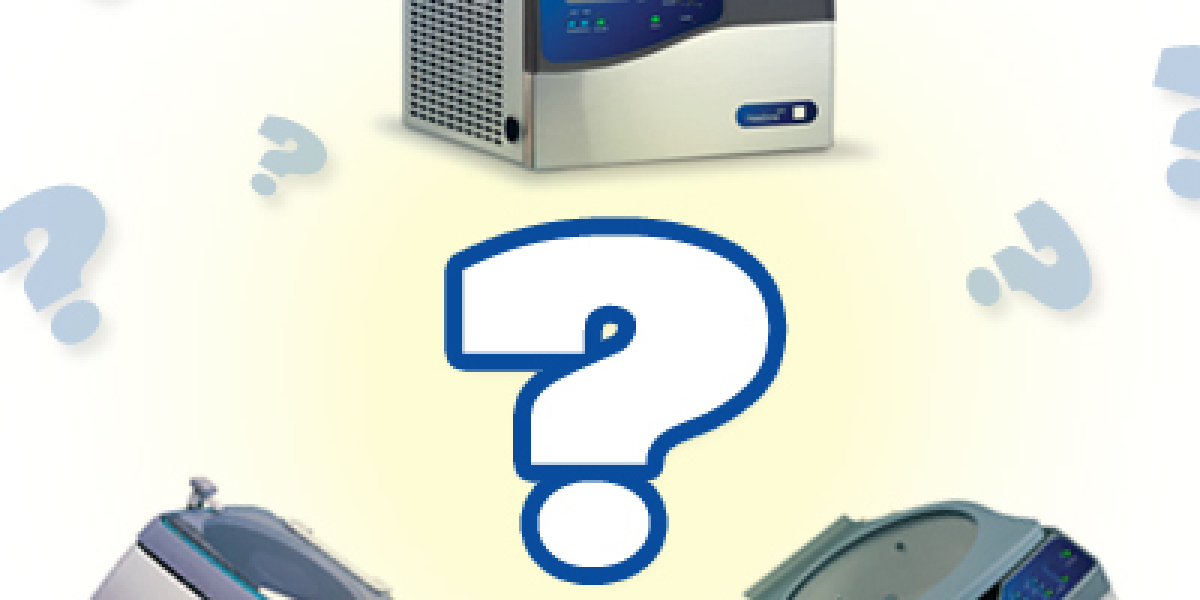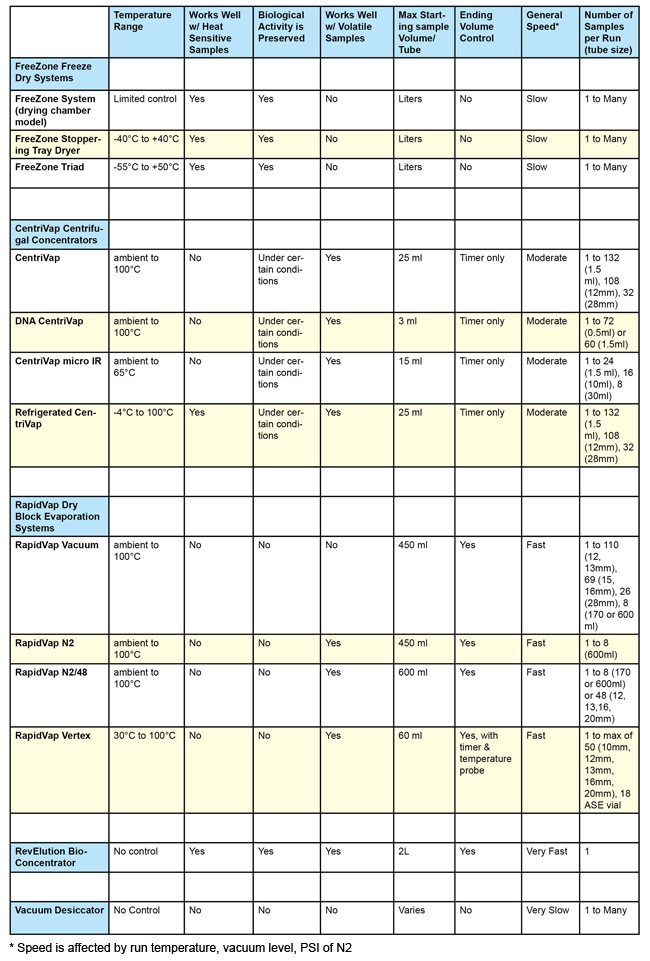What is the best way to concentrate?

There simply is not one correct answer to that question. Freeze drying, evaporating or concentrating samples is frequently a labor intensive, time-consuming step that can have a great effect on results. Concentrating a sample is often the last step before analysis. It is extremely valuable as a result of the time and money already invested. Concentration involves trial and error to determine the best method to evaporate a sample and is dependent on several factors. To help select the best method for your application, answer the following questions below:
What type of sample are you evaporating?
- Heat / frost sensitive
- Volatile
- Aqueous
- Acidic
What is the starting sample volume?
What is the end point volume?
- Specific end point
- Dryness
Do you want to preserve biological activity?
Is speed important?
- How quickly do you want your sample volume reduced?
Heat, depth of vacuum and surface area are the most important factors in evaporation. The more heat applied to a sample, the faster the evaporation rate. Sample temperatures decrease during the evaporation process because of evaporative cooling effect. If evaporation speed is a concern, controlled heat may be applied to the sample while evaporating to increase the rate of evaporation—even on heat sensitive samples. It is very important to control the heat that is added and decrease heat at the end of the run when the sample temperature is more affected by the heat input. This is because the evaporation rate has dropped off and the sample is no longer undergoing evaporative cooling.
The depth of vacuum is important when evaporating aqueous based samples. A deep vacuum is generally better to help drive off aqueous molecules. For lyophilization (freeze drying), a deep rotary vane pump is required for successful freeze dried products. By increasing the surface area of a sample, evaporation rates will also increase. Frequently end-users are not aware of the many choices there are when it comes to evaporating products.
Once you have answered the questions above, use the selection guide below to further help you select the best method for your sample. Many times there are several types of evaporators, lyophilizers or concentrators that will work for your specific application. It is up to you to choose the one that will accomplish your most important requirements. And, course, our concentration and evaporation experts are here to help you through any rough spots.

| chevron_left | Get your caffeine by breathing deeply. | Articles | Monitoring BSC Performance: Electronics vs. Traditional Pressure Gauge | chevron_right |






